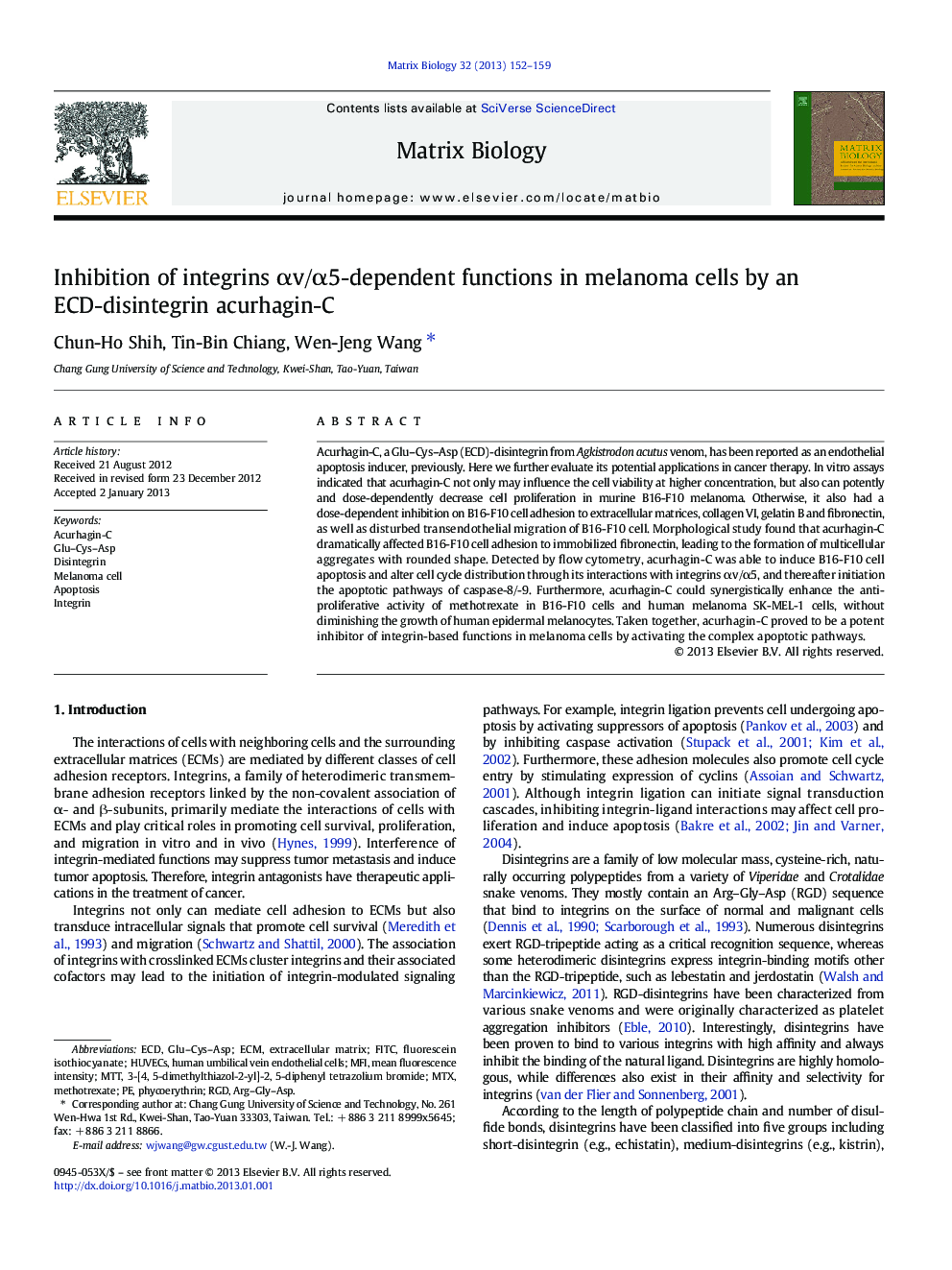| Article ID | Journal | Published Year | Pages | File Type |
|---|---|---|---|---|
| 2144886 | Matrix Biology | 2013 | 8 Pages |
Acurhagin-C, a Glu–Cys–Asp (ECD)-disintegrin from Agkistrodon acutus venom, has been reported as an endothelial apoptosis inducer, previously. Here we further evaluate its potential applications in cancer therapy. In vitro assays indicated that acurhagin-C not only may influence the cell viability at higher concentration, but also can potently and dose-dependently decrease cell proliferation in murine B16-F10 melanoma. Otherwise, it also had a dose-dependent inhibition on B16-F10 cell adhesion to extracellular matrices, collagen VI, gelatin B and fibronectin, as well as disturbed transendothelial migration of B16-F10 cell. Morphological study found that acurhagin-C dramatically affected B16-F10 cell adhesion to immobilized fibronectin, leading to the formation of multicellular aggregates with rounded shape. Detected by flow cytometry, acurhagin-C was able to induce B16-F10 cell apoptosis and alter cell cycle distribution through its interactions with integrins αv/α5, and thereafter initiation the apoptotic pathways of caspase-8/-9. Furthermore, acurhagin-C could synergistically enhance the anti-proliferative activity of methotrexate in B16-F10 cells and human melanoma SK-MEL-1 cells, without diminishing the growth of human epidermal melanocytes. Taken together, acurhagin-C proved to be a potent inhibitor of integrin-based functions in melanoma cells by activating the complex apoptotic pathways.
► Acurhagin-C has anti-proliferative, anti-adhesive, and anti-migratory activities in murine B16-F10 melanoma cells. ► Acurhagin-C also can inhibit B16-F10 cell adhesion to immobilized fibronectin and alter their morphology. ► The apoptotic pathways of caspase-8/-9 are involved in B16-F10 cells apoptosis induced by acurhagin-C. ► Acurhagin-C may cause B16-F10 cell apoptosis and cell cycle regression through its blockade of integrins αv/α5. ► Acurhagin-C, an ECD-disintegrin, has potential applications in integrin-based anti-melanoma therapies.
